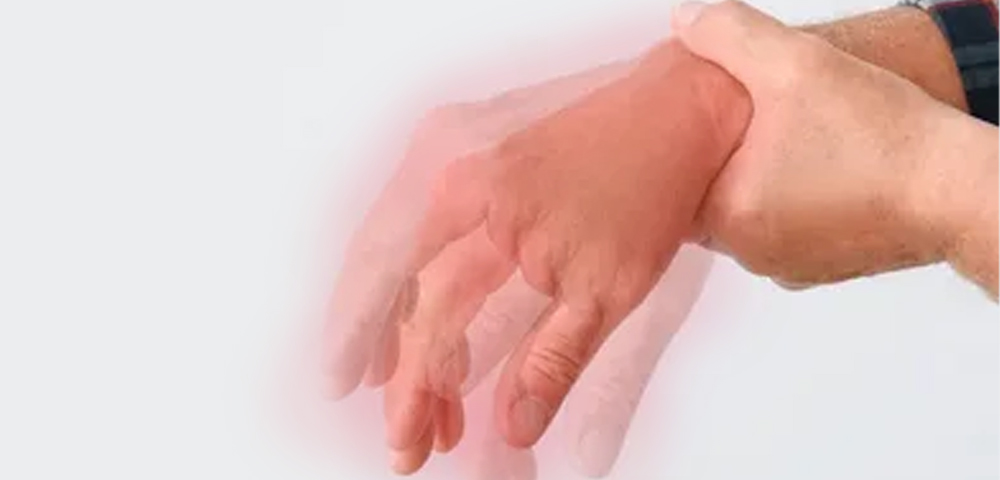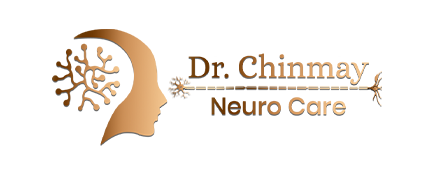
What is Parkinson's Disease?
Parkinson’s disease is a progressive condition where part of the brain deteriorates, affecting movement and muscle control. It often starts with mild tremors in one hand or foot and can lead to stiffness, slow movement, and balance problems. As the disease progresses, it can also impact speech, facial expressions, and mental health. While there’s no cure, treatments like medications and sometimes surgery can help manage symptoms and improve quality of life.
Causes of Parkinson's Disease
The exact cause of Parkinson’s disease is still unknown, but several factors may contribute to its development. The disease occurs due to low levels of a chemical known as Dopamine in the brain.
- Genetics: Some people inherit Parkinson’s disease from their parents due to genetic mutations. This accounts for about 10% of cases. Specific genes have been linked to early onset and distinctive symptoms.
- Environmental Factors: Exposure to certain toxins like pesticides, solvents, and air pollution may increase the risk of developing Parkinson’s disease. However, these are considered potential triggers rather than confirmed causes.
- Protein Misfolding: In idiopathic Parkinson’s disease, the brain struggles to break down a protein called α-synuclein. This misfolding leads to the formation of clumps known as Lewy bodies, which damage brain cells and contribute to symptoms.
- Age: The risk of developing Parkinson’s disease increases with age, typically affecting people over 60.
- Injuries and Toxins: Head injuries, particularly from contact sports, and exposure to certain toxins, such as manganese dust or carbon monoxide, can cause parkinsonism-like symptoms.
Symptoms of Parkinson’s Disease
Parkinson’s disease presents differently in each person, but some common symptoms include:
- Tremor (Shaking): Often starting in the hands, fingers, or jaw, it occurs when the muscles are at rest. The “pill-rolling” tremor (rubbing the thumb and forefinger together) is a hallmark sign.
- Bradykinesia (Slowed Movement): Movement becomes slower over time, making everyday tasks like dressing, eating, or getting out of a chair harder. People may also experience less facial expression or difficulty blinking.
- Muscle Rigidity: Stiffness in the muscles, which can cause pain and reduce movement flexibility. Movements may feel jerky.
- Balance Problems: A person may experience difficulty walking or maintaining posture, leading to a stooped position and increased risk of falling.
- Speech Changes: Speech may become softer, slurred, or monotone, making communication harder.
- Writing Changes: Handwriting may become smaller, cramped, or harder to read.
- Non-Motor Symptoms: These can include depression, anxiety, sleep issues, memory difficulties, fatigue, and changes in the sense of smell. Some people may also experience constipation or trouble with cognitive tasks.
Types of Parkinson's Disease
- Idiopathic Parkinson’s Disease: The most common form, typically starting between the ages of 55 and 65. Its cause is unknown, but symptoms include tremors, rigidity, and slow movement.
- Early-Onset Parkinson’s Disease: This type occurs between the ages of 21 and 40 and has similar symptoms to idiopathic Parkinson’s but affects younger individuals.
- Juvenile Parkinson’s Disease: A rare form that begins in childhood or adolescence. It can last for many years and is often linked to genetic factors.
- Drug-Induced Parkinsonism: Caused by certain medications that interfere with dopamine function. It’s the second most common cause of Parkinson’s-like symptoms.
Atypical Parkinsons Disease: Parkinson’s Dementia, Progressive Supra-nuclear palsy, Multi-system atrophy, Dementia with Lewy Body Disease are several atypical types of Parkinson’s Disease.
Parkinson’s Disease Treatment by Dr. Chinmay Kumbhar
- Our team is skilled and specialized to pick-up and treat Parkinson’s Disease. There are different types of atypical and typical Parkinson’s Disease which needs tailor made treatment for each patient according to the individual symptoms and no two patients can have the same list of medicines for managing Parkinson’s Disease. Dr. Chinmay is passionate about use of newer device related therapy modalities to improve mobility and maintain independence in activities of daily life.
Why choose Dr. Chinmay Kumbhar Parkinson's Disease Treatment ?
Dr. Chinmay Kumbhar provides comprehensive treatment options for Parkinson’s disease. Our approach includes:
- Medication Management: Dr. Chinmay carefully adjusts medications to help control symptoms such as tremors, rigidity, slowness of movement and sleep disorders.
- Physical Therapy: He recommends physical therapy exercises to improve mobility, balance, and posture.
- Advanced Treatments: For more severe cases, treatments like Deep Brain Stimulation (DBS) are considered to target and stimulate specific areas of the brain to manage symptoms.
- Lifestyle and Supportive Care: We offer guidance on lifestyle changes, including diet, exercise, and sleep, to support overall health and wellbeing.
Each treatment plan is personalized, ensuring the best care for managing Parkinson’s disease and improving the patient’s quality of life.
We strive our best to prevent disease progression and optimum symptom management to help patient lead an independent life. Medication and device assisted treatment plans, individualized according to patient needs.
We also understand the difficulties, which families of patients suffering from Parkinson’s disease and adopt a holistic empathetic approach to not only treat the disease, but help you in dealing with the situation in the best possible way.
